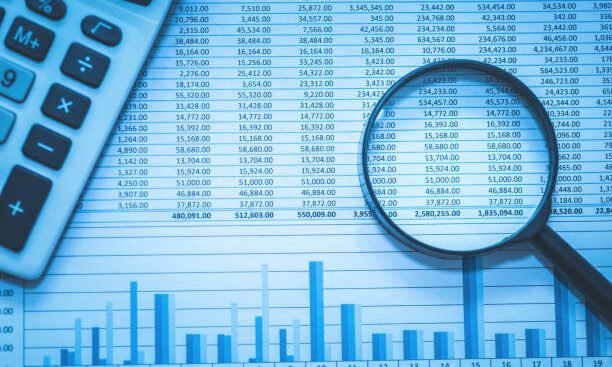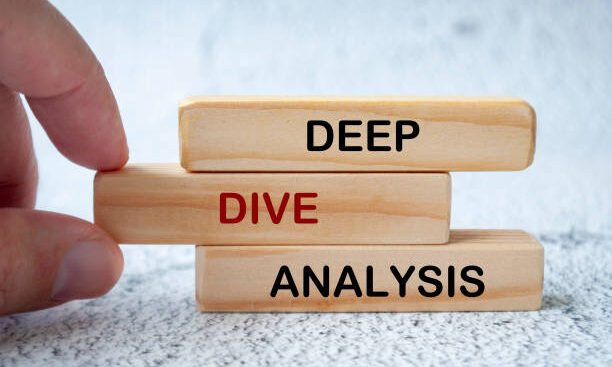In today’s ever-evolving financial landscape, fraud and financial discrepancies are on the rise, affecting individuals, businesses, and even governments. To safeguard against these risks and ensure the integrity of financial transactions, forensic accounting audits have become an indispensable tool. Forensic accounting combines accounting, auditing, and investigative skills to uncover fraud, errors, or mismanagement in financial records. One of the most critical aspects of forensic accounting is its role as a fraud stopper.
A forensic accounting audit does not just detect financial misdeeds; it helps prevent them by providing a detailed, objective, and thorough examination of financial transactions. This audit can be invaluable to businesses, legal entities, and individuals who want to identify and mitigate the risks associated with financial fraud. Fraud stoppers—systems, strategies, and tools designed to prevent fraudulent activities—play a pivotal role in forensic accounting.
Whether you’re a business owner, a financial professional, or an individual, understanding the significance of forensic accounting audits and the fraud-stopping measures they offer is crucial. In this blog, we will delve deep into forensic accounting, explore fraud stoppers, and provide insights from industry experts to help you understand why forensic accounting is the key to securing your financial future.
What is Forensic Accounting?
Forensic accounting is a specialized area of accounting that involves investigating financial records for the purpose of uncovering fraud, embezzlement, money laundering, or any other financial wrongdoing. The term “forensic” refers to its use in legal contexts, meaning the findings of forensic accounting audits are often used as evidence in court cases.
Unlike traditional audits, which focus on financial health and performance, forensic accounting digs deeper into financial discrepancies, tracing funds, analyzing data, and following the money trail to uncover the truth. It’s a comprehensive process that looks beyond the surface, helping to uncover hidden financial crimes.
Forensic accounting involves various techniques, including:
- Data Mining:Scanning large volumes of financial data for patterns that indicate fraud.
- Transaction Analysis:Reviewing individual transactions for signs of manipulation or irregularities.
- Interviews and Interrogations:Gathering information from employees or witnesses who may have knowledge of fraudulent activities.
- Digital Forensics:Analyzing electronic records and digital communications to uncover evidence of fraud.
Why Are Forensic Accounting Audits Crucial?
Forensic accounting audits are essential for several reasons, each contributing to the prevention and detection of fraud:
- Uncover Hidden Fraud:Financial fraud is often concealed through sophisticated methods. Forensic accountants use specialized techniques to dig deep into financial records, identifying even the most well-hidden fraudulent activities.
- Prevent Future Fraud:By identifying vulnerabilities in financial processes, forensic accounting audits provide businesses with the knowledge to put fraud-prevention measures in place.
- Ensure Legal Compliance:Fraudulent activities can result in significant legal consequences. Forensic audits help ensure that businesses comply with regulations, reducing the risk of legal issues.
- Protect Reputation:The reputation of a company or individual can be irreparably harmed if fraudulent activities are discovered. A forensic accounting audit helps mitigate the damage by providing transparency.
- Recovery of Stolen Assets:In cases of embezzlement or theft, forensic accountants can trace the flow of stolen funds, potentially recovering lost assets.
Fraud Stoppers: Key to Preventing Financial Misconduct
Fraud stoppers are the tools, strategies, and systems employed during forensic accounting audits to prevent fraudulent activities from occurring. These fraud prevention measures are vital in identifying potential weaknesses in a financial system and preventing fraudulent activities before they happen.
Some of the most effective fraud stoppers include:
- Segregation of Duties
Segregation of duties is one of the most fundamental principles in fraud prevention. By ensuring that no single individual has control over all aspects of a financial transaction, businesses can prevent opportunities for fraud. For example, the person who authorizes a payment should not be the same person who processes it or reconciles it. This separation of responsibilities significantly reduces the likelihood of fraudulent activities.
- Regular Audits and Reviews
Frequent forensic audits help detect fraud early by ensuring that financial records are consistently checked. These audits should be thorough, with an emphasis on scrutinizing high-risk areas where fraud is more likely to occur, such as cash transactions, accounting irregularities, or financial reports. Regular reviews discourage employees from engaging in fraudulent activities, as they know that their actions are being closely monitored.
- Employee Training and Awareness
One of the most effective fraud-stopping techniques is educating employees about fraud prevention. By training employees to recognize signs of fraud and the consequences of financial misconduct, businesses can create an environment where fraud is less likely to occur. Knowledgeable employees are more likely to report suspicious activities and actively participate in anti-fraud efforts.
- Whistleblower Programs
Implementing a whistleblower program allows employees and stakeholders to anonymously report suspected fraudulent activities. These programs empower individuals to speak up without fear of retaliation, creating a robust safety net for fraud detection. Whistleblower systems are an essential part of a comprehensive fraud prevention strategy.
- Data Analytics and Forensic Tools
Forensic accounting is increasingly reliant on technology to detect and prevent fraud. Specialized software can analyze vast amounts of financial data and identify anomalies that may indicate fraudulent activities. These tools include advanced algorithms that flag suspicious transactions or identify patterns of behavior associated with fraud.
- Internal Controls
Strong internal controls are the backbone of any effective fraud prevention strategy. These controls include policies and procedures that ensure financial activities are conducted according to established guidelines. For example, approval processes for large payments, access controls to sensitive financial data, and reconciliations of financial records are all critical components of internal controls.
How Forensic Accounting and Fraud Stoppers Work Together
Forensic accounting and fraud stoppers are closely intertwined. Forensic accountants use fraud stoppers to identify vulnerabilities and trace fraudulent activities. The role of fraud stoppers is not limited to preventing fraud from occurring; they also provide forensic accountants with the tools and methods they need to uncover fraud that has already taken place.
During a forensic audit, fraud stoppers may include:
- Reviewing financial statements and reportsfor irregularities or discrepancies.
- Conducting interviews and interrogationsto gather insights into the behavior of employees or third parties.
- Utilizing data analyticsto scan through vast amounts of transactional data, searching for signs of fraud.
- Implementing whistleblower systemsto ensure that potential fraud is reported promptly.
Together, forensic accounting and fraud stoppers create a comprehensive system for detecting, preventing, and addressing financial fraud.
Expert Opinions on Forensic Accounting Audits
John Harrison, Certified Forensic Accountant:
“Forensic accounting is essential for any organization seeking to maintain the integrity of its financial practices. In today’s business world, fraud can be sophisticated, making traditional auditing methods insufficient. Forensic accounting provides a deeper level of scrutiny, allowing us to uncover fraud that may have otherwise gone unnoticed.”
Sarah Mitchell, Fraud Prevention Specialist:
“Fraud stoppers are the first line of defense when it comes to protecting your financial assets. Having a robust fraud prevention system in place is critical, but it’s just as important to regularly review and update those systems to keep up with evolving threats.”
Michael Roberts, Legal Expert:
“In legal cases, forensic accounting plays a critical role in providing evidence that can make or break a case. It’s about ensuring that all parties involved are held accountable for their actions. Fraud stoppers provide the foundation upon which forensic accountants can build their investigations.”
Real-Life Testimonials
Mark Thompson, CEO of Thompson Enterprises:
“We faced a significant challenge with financial discrepancies in our company. After engaging forensic accountants, we discovered several areas where fraud had been occurring. The audit not only helped us uncover hidden fraud but also put us in a position to implement stronger fraud prevention measures going forward. I highly recommend forensic accounting audits.”
Emily Dawson, Business Owner:
“As a small business owner, I never thought I’d be a victim of fraud, but it happened. The forensic accounting audit was eye-opening. Not only did we recover lost funds, but we also established fraud-stopping strategies that have kept our finances secure. I can’t imagine running my business without this level of protection.”
Conclusion
Forensic accounting audits are more than just a tool for uncovering fraud; they are a critical strategy for preventing financial misconduct in the first place. With fraud stoppers in place, businesses, individuals, and legal entities can detect, prevent, and address fraudulent activities quickly and effectively. The power of forensic accounting lies in its ability to uncover hidden threats and provide actionable insights to prevent future risks.
If you want to secure your financial future, avoid the devastating impact of fraud, and ensure the integrity of your financial operations, consider implementing a forensic accounting audit today.
Call to Action
Contact us today at (877)-399-2995 or visit Mortgage Audits Online to learn more. Secure your financial future with confidence!







